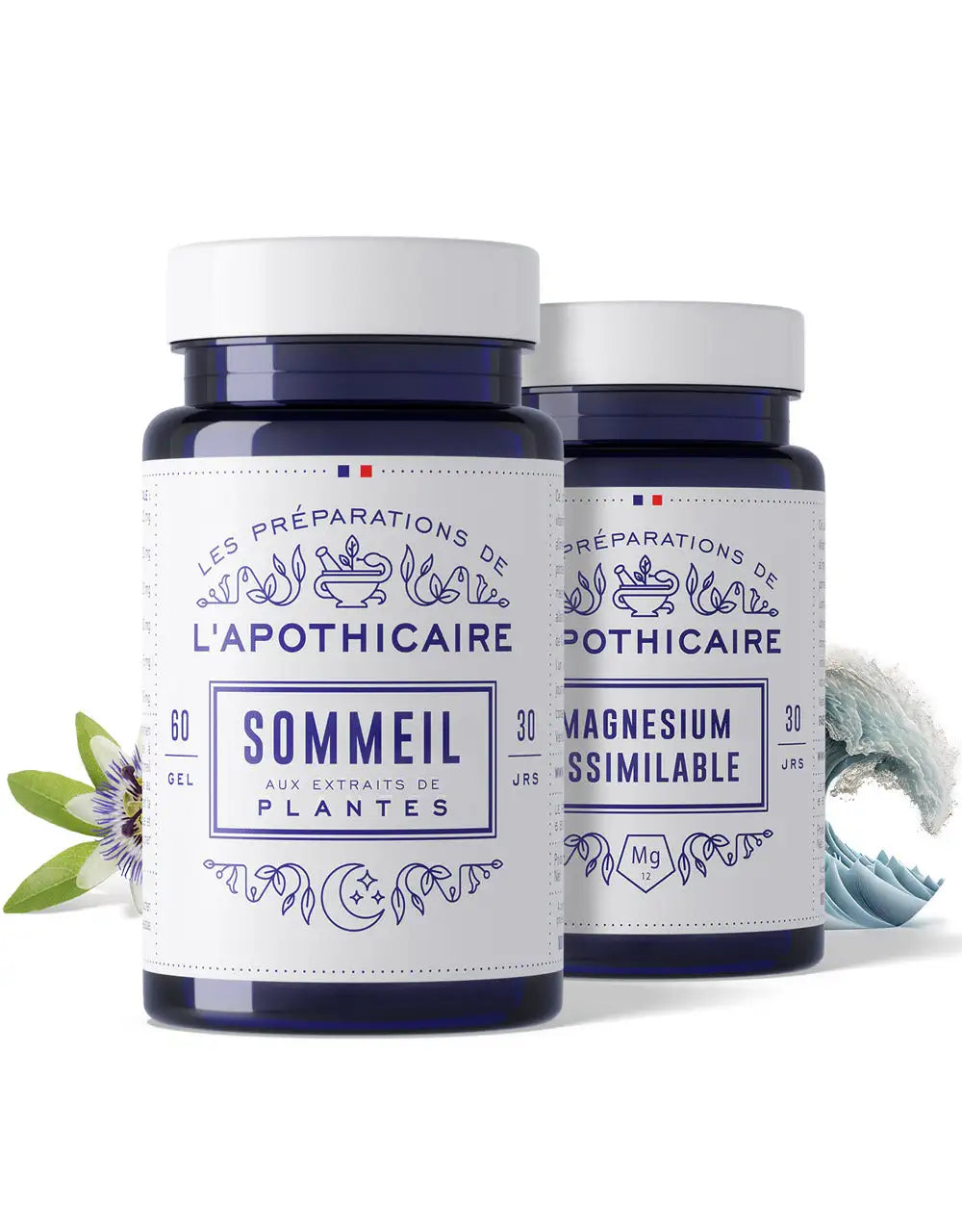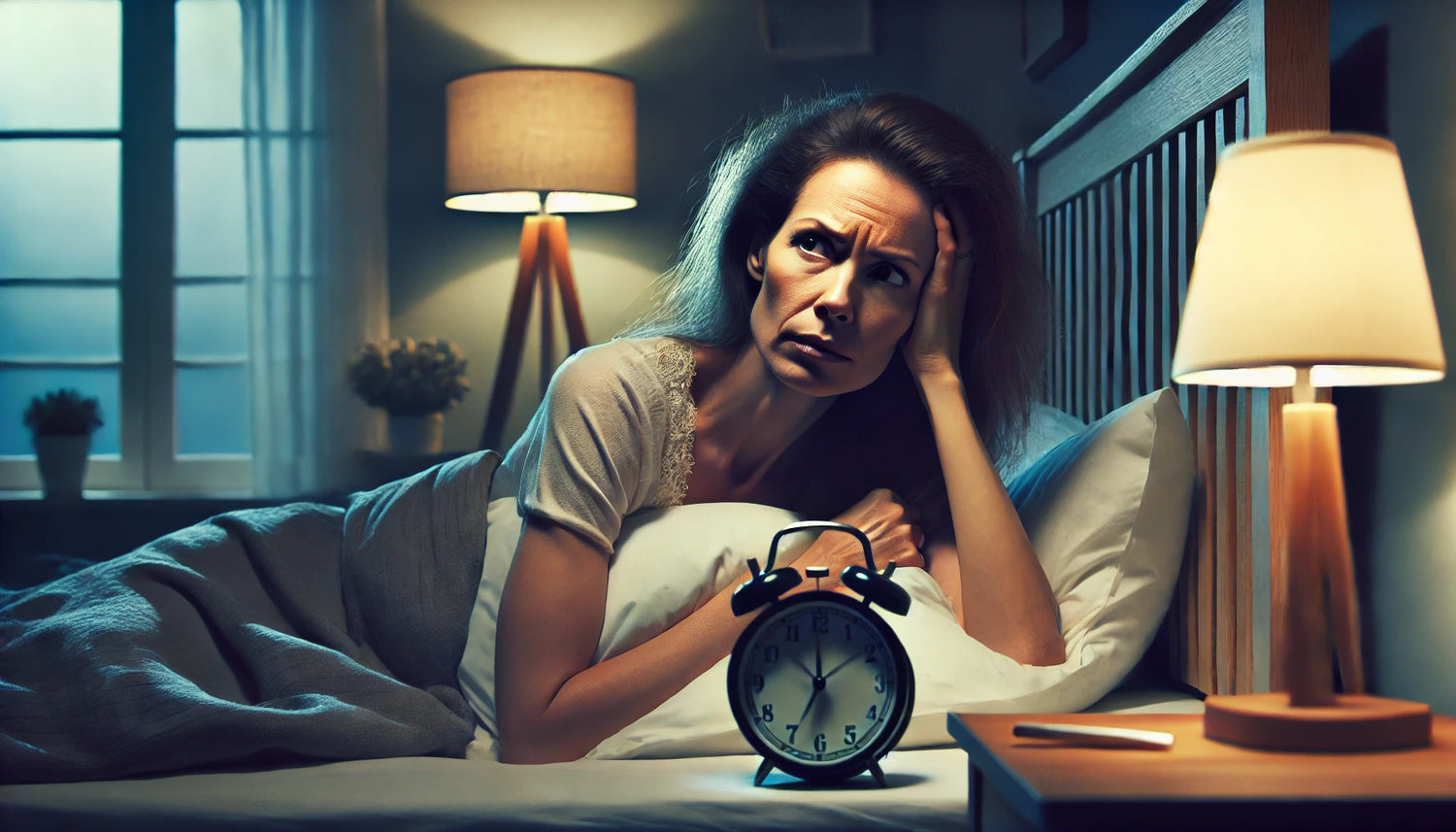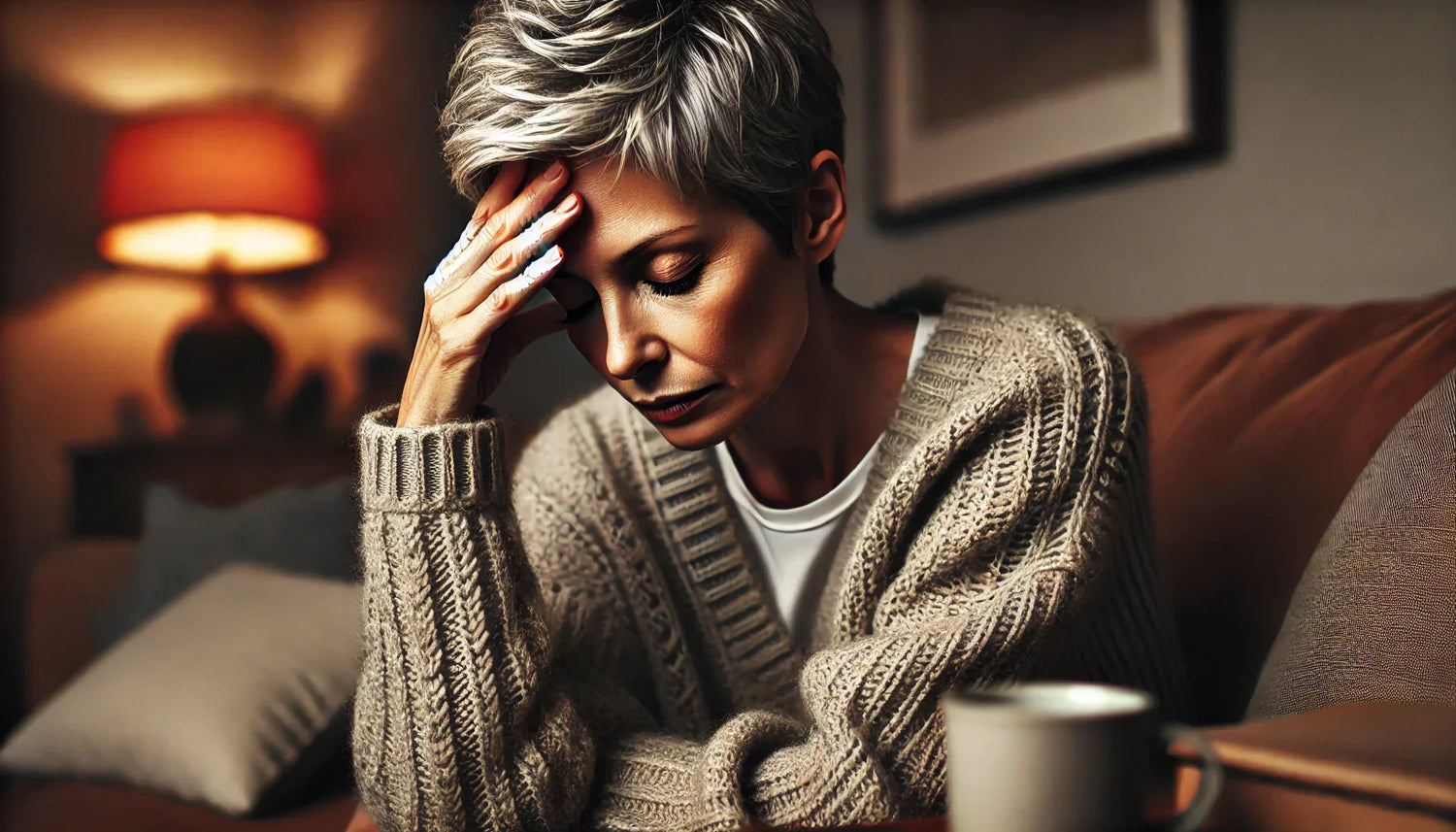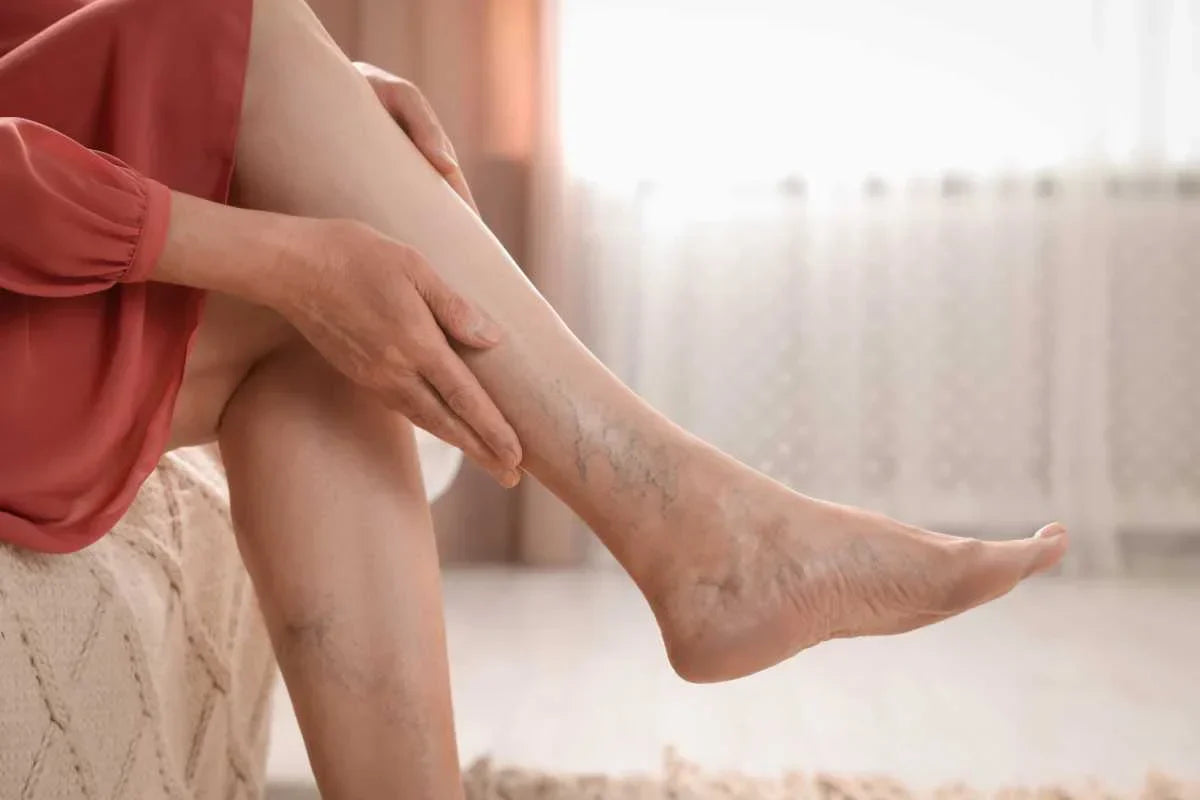There is not one type of insomnia but several: some are temporary and others are chronic if they last more than 3 months. Some are characterized by difficulty falling asleep, others by waking up at night or by a feeling of non-restorative sleep. And others are hormonal in nature. In this article, we will explain this phenomenon and give you advice on how to combat insomnia linked to hormonal imbalance.
- What is hormonal insomnia?
- Hormones that influence sleep
- Common Hormonal Causes of Insomnia
- How to treat insomnia due to hormonal causes naturally?
What is hormonal insomnia?
Insomnia is a problem that can have many origins. If our lifestyle is often responsible for our difficulties in finding sleep, dysthyroidism, hormonal disorders such as the arrival of menopause, pregnancy and the menstrual cycle could also be the cause . These insomnias are diagnosed by a doctor.

Hormones that influence sleep
Falling asleep is a complex phenomenon that requires the presence of several factors that cause the inhibition of the arousal centers in the brain, and cause the person to fall asleep.
Hormones play a key role in regulating sleep. We have identified 4 hormones that influence sleep .
Cortisol, commonly referred to as the “ stress hormone ,” is a steroid hormone produced by the adrenal glands. It plays a fundamental role in regulating several bodily functions, including metabolism, the immune system, and stress response.
Cortisol secretion follows a nycthemeral rhythm that anticipates waking up and falling asleep. Cortisolemia (cortisol level in the blood) peaks about 2 hours before waking up. Indeed, when we are exposed to the first light of day our brain sends signals to stimulate the production of cortisol to help us wake up and prepare for an active day . Subsequently, there is a gradual drop during the day of this hormone to reach its lowest level around midnight.
An excessive increase in cortisol levels delays falling asleep and prevents deep sleep. In addition, the alteration of sleep quality stimulates the production of cortisol, responsible for nighttime awakenings, aggravating pre-existing sleep disorders.
Melatonin is a natural small molecule derived from tryptophan and synthesized by our brain, whose soporific action helps us fall asleep. It also has a "chronobiotic" activity or circadian marker that participates in the synchronization of our biological clock with the circadian rhythm, this 24-hour cycle to which most of the functions of our organism are subject.
Melatonin production increases at the end of the day, when the light fades. This is the signal that it is almost time to go to bed! Its concentration in the blood increases to reach its peak around 3 or 4 a.m., then it drops to reach its minimum again by the time it would be time to get up.
We also have estrogen and progesterone : female hormones that influence sleep quality.
On the one hand, progesterone greatly facilitates rest, including the ability to fall asleep better when you are tired. Also, estrogens are closely linked to the quality of sleep, because they have a direct influence on metabolism and body temperature. Thus, the convergence of these cumulative elements means that hormonal fluctuations in themselves harm the quality of sleep.
Finally, thyroid hormones are involved in the metabolism of proteins, lipids and carbohydrates and are essential for the development of all cells, particularly those of the nervous system.

Common Hormonal Causes of Insomnia
Hormonal imbalances profoundly influence the quality of sleep and can be responsible for insomnia.
Menopause is a common cause of hormonal insomnia . The decrease in estrogen and progesterone disrupts sleep regulation. Hot flashes and night sweats cause repeated awakenings, making sleep fragmented and unrefreshing. In addition, melatonin production decreases with age, making it even more difficult to fall asleep. Anxiety and depression, often associated with the hormonal changes of menopause, accentuate these sleep disorders. To improve the quality of rest, it is advisable to maintain a cool temperature in the bedroom, avoid caffeine and alcohol in the evening and explore solutions such as herbal medicine or hormone supplementation under medical supervision.
During pregnancy , hormonal fluctuations are intense and can also disrupt sleep . Progesterone, particularly high in the first trimester, causes daytime sleepiness but paradoxically makes nighttime sleep more unstable. The increase in estrogen promotes gastroesophageal reflux and nasal congestion, making breathing more difficult at night. At the same time, the increase in cortisol linked to stress can generate insomnia. Physical discomfort due to weight gain, lower back pain and the baby's movements also contribute to these sleep disorders. To limit these disturbances, it is recommended to favor sleeping on the left side, to use a pregnancy pillow and to avoid large meals before bedtime.
Thyroid disorders, whether hyperthyroidism or hypothyroidism, also influence the quality of sleep . An overactive thyroid speeds up the metabolism, leading to nocturnal restlessness, palpitations, excessive sweating and frequent awakenings. Conversely, an underactive thyroid promotes persistent fatigue during the day while causing difficulty falling asleep and poor quality sleep. Symptoms such as muscle pain or feeling cold can also disrupt nighttime rest. Medical monitoring and hormone dosing are essential to adapt treatment and stabilize these effects.
Chronic stress is another major cause of hormonal insomnia, due to the excess cortisol it induces . Normally, this hormone follows a circadian cycle, with a peak in the morning and a gradual decrease in the evening. In situations of prolonged stress, cortisol remains high in the evening, thus preventing the production of melatonin and making it difficult to fall asleep. Mental hyperactivity and frequent nighttime awakenings are then common. To counteract these effects, the practice of meditation, cardiac coherence and a calming bedtime routine can be beneficial.
Finally, the menstrual cycle also influences sleep. In the premenstrual phase, the drop in progesterone and estrogen levels can cause irritability, anxiety and an increase in body temperature, making sleep lighter and less restorative. Abdominal pain and migraines often aggravate these disorders. During ovulation, the increase in progesterone can induce excessive drowsiness, without guaranteeing good quality sleep. To limit these inconveniences, it is advisable to adopt a diet rich in magnesium and omega-3, to reduce caffeine consumption in the premenstrual phase and to maintain regular sleep schedules.
How to treat insomnia due to hormonal causes naturally?
The first step in treating hormonal insomnia is to:
- treat illnesses that can disrupt sleep,
- correct all bad habits,
- and adopt behavior that promotes falling asleep and continuing sleep, during the day (physical activity, exposure to light) as well as in the evening (“digital curfew”).
It is also important to establish a constant and regular "ritual" around bedtime to gradually return to normal sleep. For some patients, gentle approaches (relaxation, herbal medicine, sophrology , etc.) can be additional aids.
We are not all equal when it comes to the risk of insomnia, but with equal risk, certain behaviors adopted in the evening reduce the quality of sleep: a large dinner, consumption of caffeine, alcohol or tobacco in the hours before bedtime, practicing a late sporting activity, an overheated or noisy room.

Get a good night’s sleep with our Duo Sleep supplement!
A natural formula to calm the mind, reduce anxiety and promote rapid sleep.
Discover Duo Sleep!Hormonal fluctuations, often seen during specific periods of life such as pregnancy, menopause, and premenstrual syndrome, can disrupt the sleep-wake cycle and lead to difficulty falling asleep, staying asleep, or getting quality sleep. According to various studies, approximately 78% of pregnant women report sleep disturbances, including insomnia, largely due to high levels of progesterone and estrogen. Therefore, it is important to consult a specialist to assess your hormonal profile if you suffer from persistent insomnia.
Hormonal variations are the cause of serious symptoms and must be the subject of a medical consultation for appropriate treatment.







